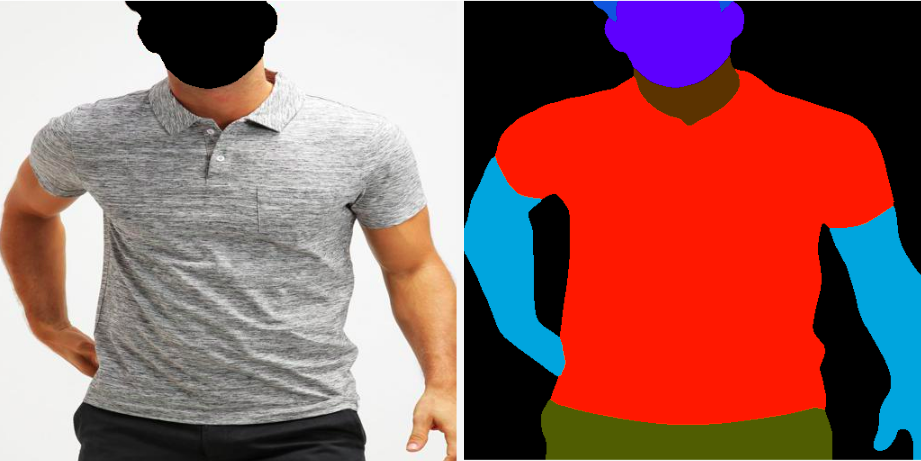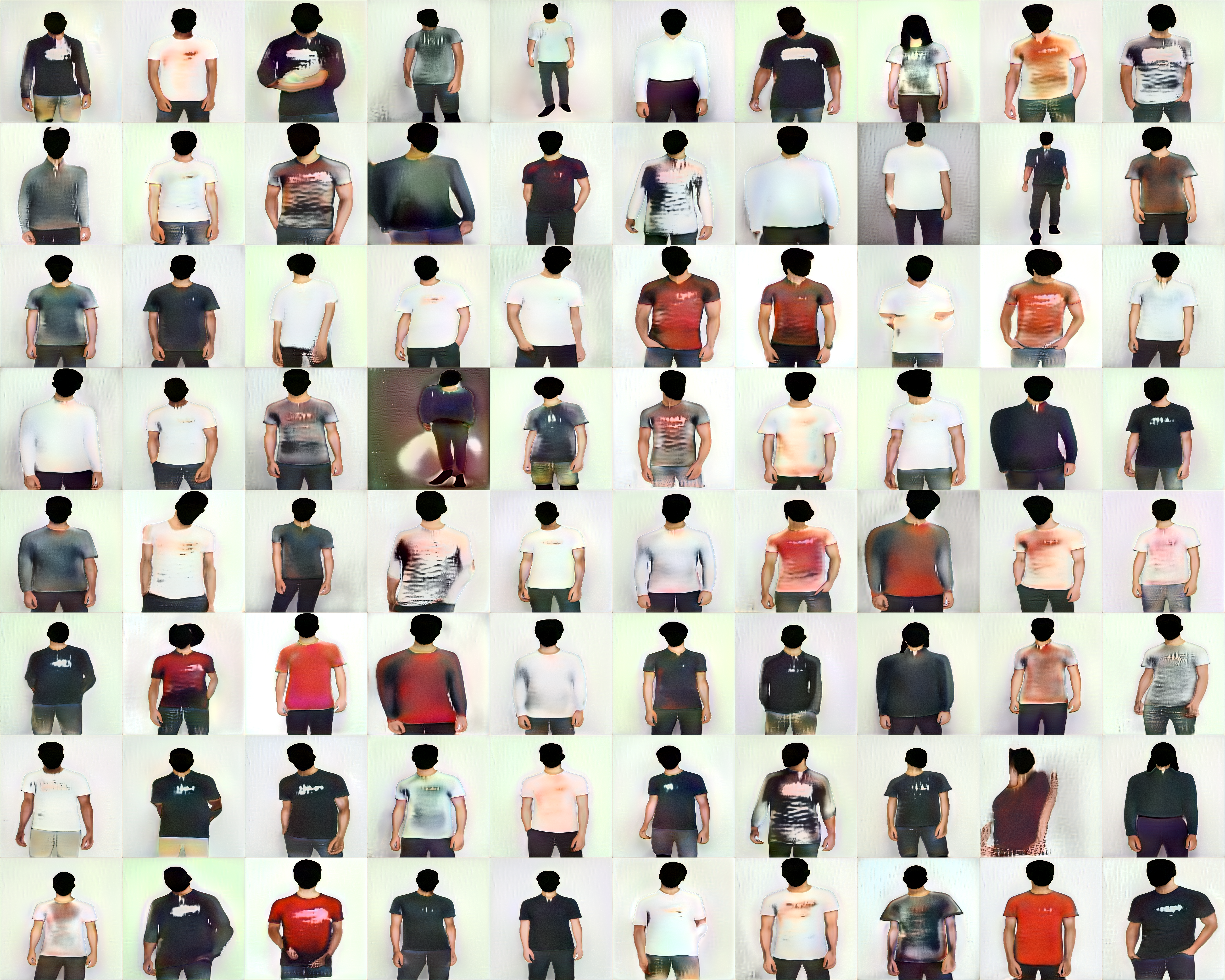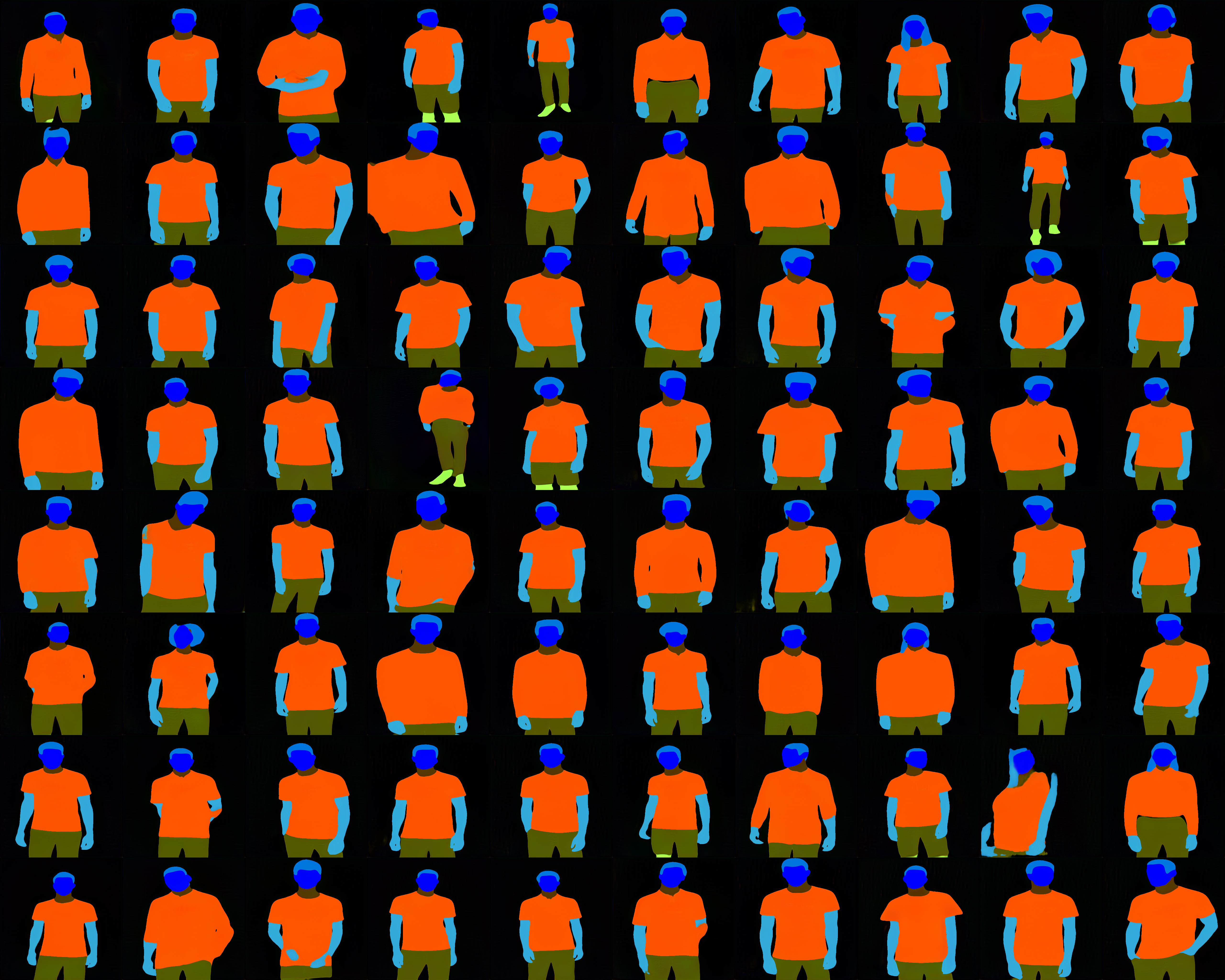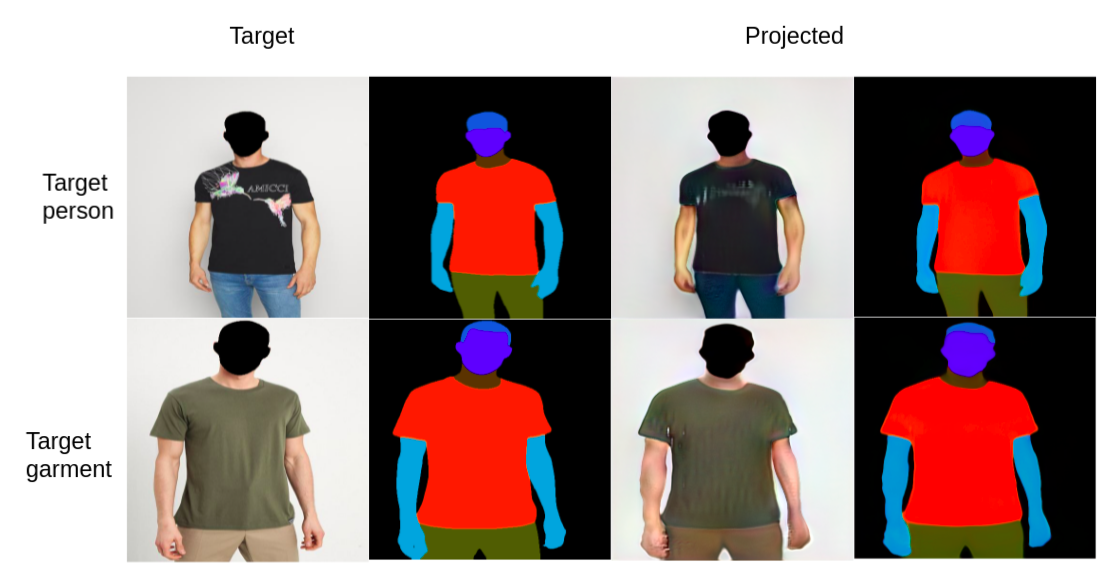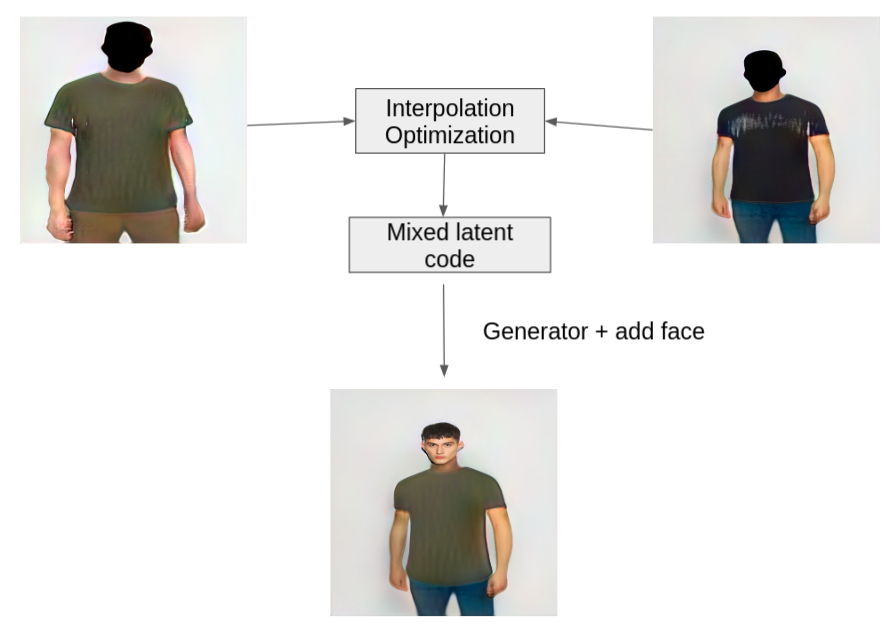This is an attempt of pytorch implementation of the paper VOGUE. As we faced many ambiguities in the paper, this repository may not match the exact work claimed on the paper.
Goal: Given a pair of images-target person and garment on another person this approach generates the target person in the given garment.
The network archtecture is implemented as shown in the paper. Below image is extracted from the paper

We used official StyleGAN2-ADA as the base StyleGAN2 implementation.
To train your network:
python train.py --outdir=training-runs --data=<data_root_dir> --gpus=1 --cfg=vogue --mirror=1 --snap=1 --aug=noaug
data_root_dir contains images, keypoints, masks
Projection:
To obtain the latent code of any image use projector_vogue.py and check the argparse parameters
Style mixing:
To perform any style mixing experiment use style_mixing_vogue.py and check the argparse parameters
We collected 25000 male images wearing t-shirts or shirts. For all training images 18 pose keypoints were obtained using Openpose. Ground truth segmentation masks were obtained using Part-Grouping-Network and further mapped to VOGUE labels. Refer to the mapping script from CIHP to VOGUE labels. Face details are masked in RGB image to make training easier. RGB and corresponding segmentation are resized to 512X512 and concatenated channel wise.
To transfer cloth from one person to another their latent codes are interpolated and the optimal latent code is found through an iterative optimization procedure.
- get the latent codes using projector_vogue.py
- run python main_latent.py and change the parseargs as required.
- model weights can be downloaded here
